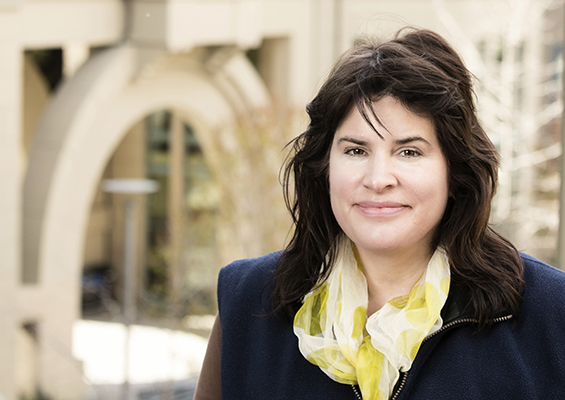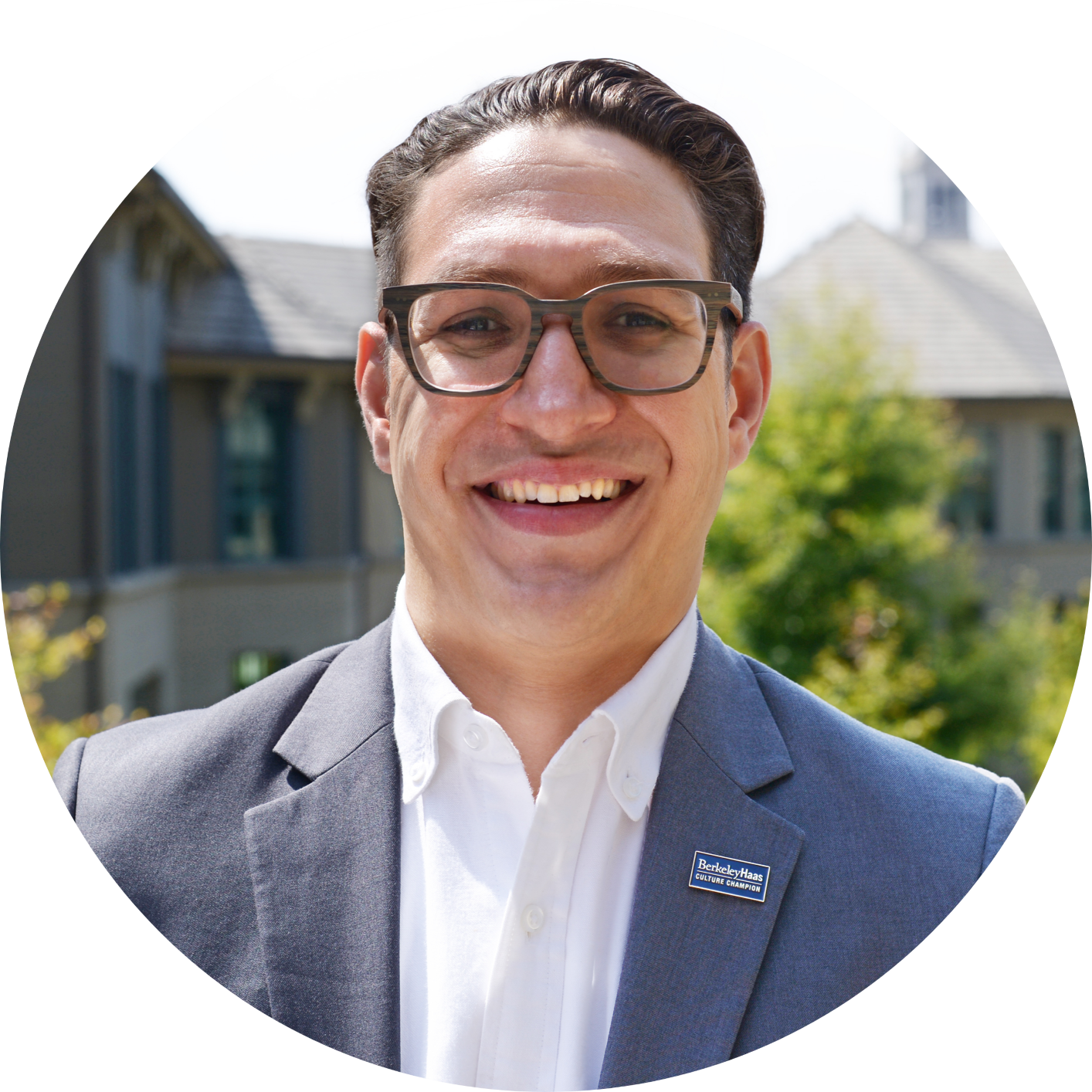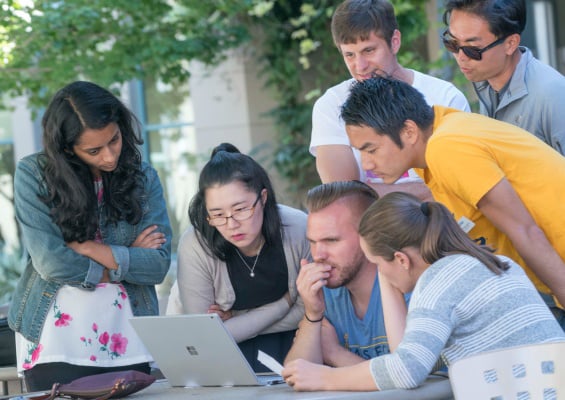Before entering academia, Professor Christine Parlour worked in reinsurance and also in securities settlement, two jobs that focus on the mechanics of how things happen. That sparked her interest in the “plumbing” of financial systems. Now, the holder of the Sylvan C. Coleman Chair in Finance and Accounting, she researches and teaches topics related to recent “radical” changes to the traditional finance system, like decentralized finance.
How do you approach Fintech in your class on that topic?
My role is to provide the background and clear explanations of general systems and principles of fintech. I introduce students to how fintech firms work, which is often quite different from more traditional firms. We discuss concepts like two-sided markets, platforms, and platform competition, and increasingly, cryptocurrencies and blockchain.
The goal is for them to translate those concepts into the sector they already know or the sector they want to work in.
Teaching [MBAs] is like an exhilarating game of ping-pong."
How has the class evolved since you began teaching it?
What I teach has shifted radically because the material and industry are moving so quickly. Each time I teach the course, I update it and teach different topics. So even though it goes under the same course title, it is never the same course twice.
Five years ago, I focused mostly on two-sided markets and platforms because at that time, fintech was all about payment systems. Now the class and my research are much more focused on cryptocurrency and decentralized finance, or DeFi, because that is where fintech has moved.
Stablecoins, which are digital currencies pegged to fiat currencies, are one example. According to a recent JP Morgan report, Tether is now one of the largest purchasers of short-term commercial paper. That is a massive footprint, and it is just one stablecoin. Regulators are taking notice and getting worried because cryptocurrencies are outside regulators’ reach, in essence doing business on a beach in the Caribbean.
NFTs (nonfungible tokens) are another development. The very first NFT, created by Dapper Labs, was Cryptokitty. You could—still can—buy and sell kitties and even mate them with other kitties on the blockchain. OpenSea, which enabled auctioning Cryptokitties, became a massive business.
What lessons can MBAs take from Cryptokitties and apply in more traditional businesses?
While NFTs may sound silly, the fintech concepts behind them have serious implications for businesses.
Right now, for most businesses—large and small—fintech has its biggest impact on the backend. It affects the giant machinery of payments, value transfer, and supply chains—all the elements that make an economy work. The Square payment dongle is a good example. That was revolutionary. That technology changed who can take credit cards and what it costs.
What are the rewards of teaching MBAs?
MBA students have already had a successful career and thrived in a stressful work environment. They have experienced how the economy works and have their own perspectives on what is right and wrong about it. They bring that to the classroom.
They take what they are learning, turn it around and upside down to understand how it would have worked in their last job or will work in their new job. Teaching them is like an exhilarating game of ping-pong.
Why should MBA students embrace their finance classes?
Finance is at the heart of what you want a business to do: transfer and store value. Understanding how that happens is of the first order for any business. It is fundamental.
There is a logic about how value moves and is stored. History is littered with bad financial decisions. Sometimes you make the wrong decision. Sometimes you make the right decision, and it still turns out badly. When you understand finance, you are far better prepared to make the best decisions you can at the time with the information you have available.
The expertise and insight your professors bring helps deepen and enhance your MBA journey. By selecting a top school with top-notch professors, you maximize your experience.
Read more from the Take 5 with a professor series:
- Jon Metzler connects people and places in ways that foster innovation
- Homa Bahrami explores agility and flexibility for enterprises and individuals
- Cameron Anderson can prove that being a jerk is not a good career strategy
- Laura Kray reveals the skill MBAs want in their core curriculum
- Kellie McElhaney talks equity fluency, courage, and vulnerability
- Lucas Davis shares hardest economic concept for MBA students to grasp
- Jenny Chatman gives three benchmarks of an effective organizational culture
- Jennifer Cohen talks equitable and inclusive leadership
- Clark Kellogg shares how he teaches design thinking, creativity, and innovation
- Dave Rochlin talks flipping the classroom: MBAs learn by doing
- Maura O'Neill says narrow-mindedness is the enemy of innovation
- Bill Pearce says most important trait of a successful marketer is empathy









